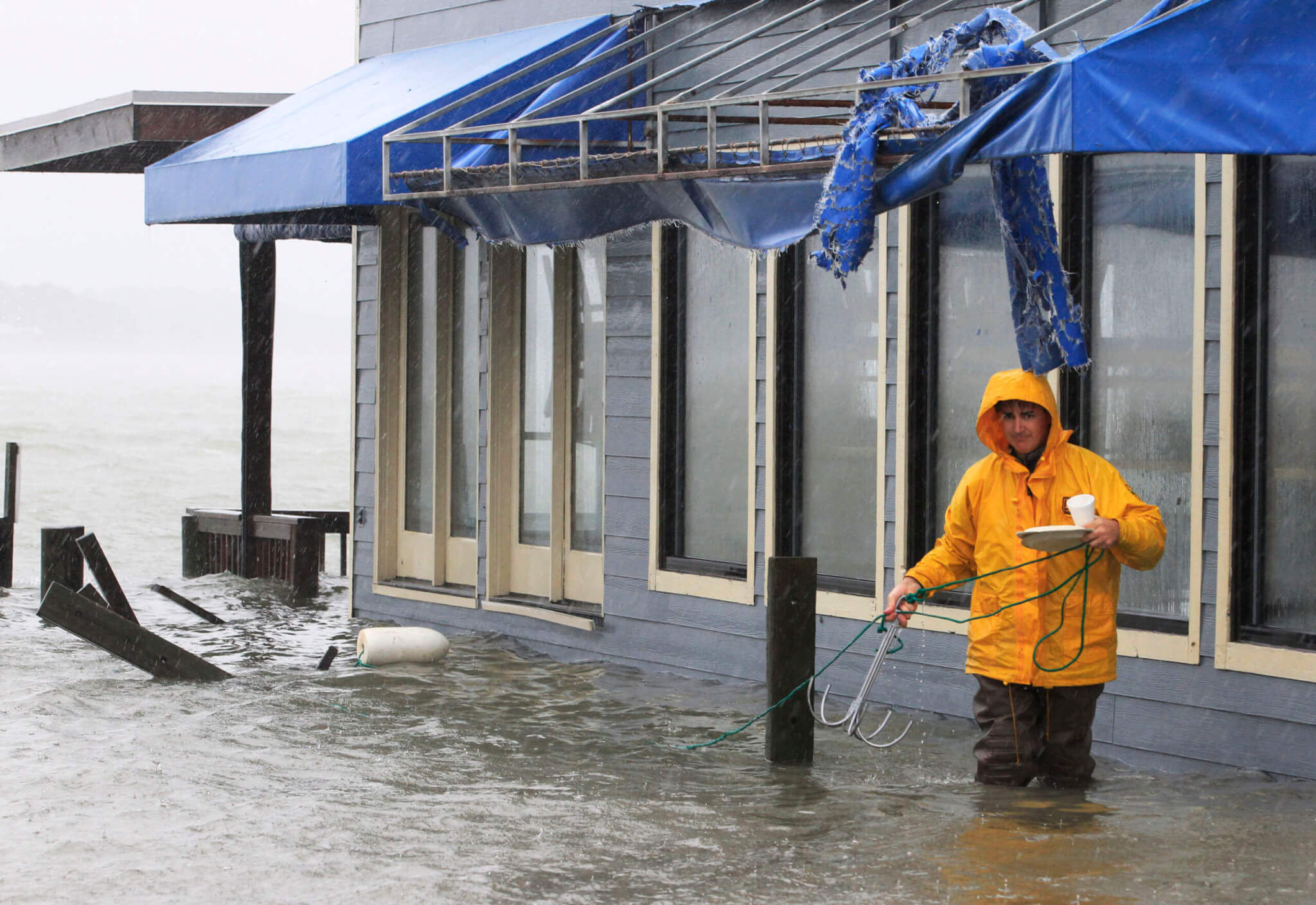
Flooding in Virginia Beach (AP Photo/Steve Helber)
As hurricane season continues, Virginians are once again experiencing the impacts of climate change – more intense storms, flooding, polluted waterways, and more. The commonwealth’s delayed-but-finally-approved budget agreement includes several different ways to address environmental issues – some that could have an impact sooner rather than later.
The budget amendment agreement’s direct rebates for taxpayers ($200 for individuals, $400 for couples filing jointly) drew much of the attention after a deal between Republican and Democratic lawmakers was finally reached in late August and approved at the beginning of September, but Democrats also fought for increased funding for other priorities, including the environment.
One significant budget item aims to boost Virginia communities’ disaster preparedness via $100 million in new funding for the Resilient Virginia Revolving Loan Fund, a program created in 2022 to give the state greater flexibility in funneling assistance to local governments and individual property owners impacted by flooding.
This funding increase comes as hurricane season is in full swing, a time of year that often brings major flooding to Hampton Roads and other parts of the state. Additionally, the National Oceanic and Atmospheric Administration (NOAA) has released its yearly outlook for high-tide flooding, which are floods unconnected to storms or other dramatic weather events; rather, these floods largely result from sea-level rise and El Niño effects.
The annual outlook predicts that coastal communities will have four to nine high-tide flood days through next April. At Norfolk’s Sewells Point, the 2023 estimate is between 15 and 19 days; the Eastern Shore is predicted to have nine to 13 days of such flooding.
The budget agreement also provides significant funding designed to address water pollution. It makes a deposit of $644 million in the state Water Quality Improvement Fund, which was established in 1997 as a permanent reservoir of dollars to fund grants to local governments, soil and water conservation districts, state agencies, higher education institutions, and individuals for water pollution control and cleanup efforts.
An additional $286 million was designated to fund matching grants for farmers who use agricultural best practices to reduce water pollution, including installing fences and forested buffers around waterways.
Virginia’s Enhanced Nutrient Removal Certainty Program – established in 2021 to accelerate wastewater treatment plant improvements to reduce related pollution – is receiving $151 million in additional funding. An extra $30 million is slated for a fund that helps local governments deal with stormwater runoff, a source of significant pollution in Virginia as climate change fuels more severe storms.
The Chesapeake Bay Foundation, a watchdog organization that fights for effective, science-based solutions to the pollution degrading the Chesapeake Bay, was pleased with the environmental funding included in the amended budget.
“We’re thrilled that legislators worked together to reach an agreement that commits unprecedented levels of investment in farm conservation practices and other programs that reduce pollution to Virginia’s waterways,” said CBF’s acting Virginia executive director Christy Everett. “Accelerating funding for these projects is the only way Virginia will make progress toward longstanding goals to reduce pollution under the Chesapeake Clean Water Blueprint.”
Politics

VIDEO: Youngkin won’t add legal protection for birth control access
Access to birth control remains vulnerable to potential future attacks after Republican Gov. Glenn Youngkin effectively blocked a bill that would...

Trump says he would allow red states to track pregnancies, prosecute abortion ban violators
In an interview published by Time magazine this week, former president Donald Trump detailed his plans for a potential second term and said he would...
Local News

The zodiac signs of 12 iconic women offer insight into their historic accomplishments
Zodiac signs can tell you a lot about someone’s personality. Whether they’re an earth, water, air, or fire sign, these 12 categories (which are...

Virginia verses: Celebrating 5 poetic icons for National Poetry Month
There’s no shortage of great writers when it comes to our commonwealth. From the haunting verses of Edgar Allan Poe, who found solace in Richmond's...




